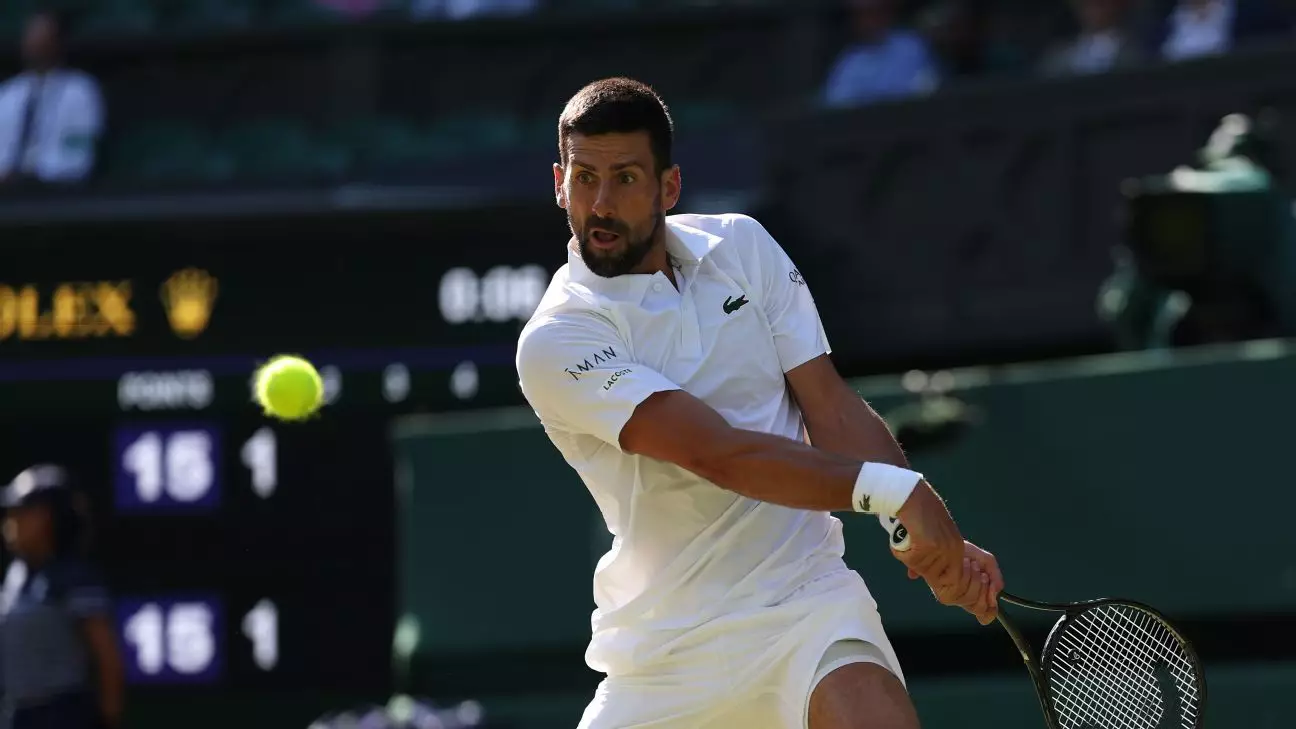Novak Djokovic’s sudden emotional display after his defeat at Wimbledon captured the world’s attention, fueling speculation about the decline of a tennis titan. Yet, beneath the surface of that tearful farewell lies a complex narrative about resilience, aging, and the unyielding desire to compete. While Djokovic’s heartfelt farewell on Centre Court may appear tragic, it’s crucial to question whether this really signals the end of his illustrious career or is merely a poignant pause in an ongoing saga. His words and actions seem to oscillate between vulnerability and resilience, suggesting that for Djokovic, emotions can often be a mask for a man who refuses to accept the final chapter just yet.
His apparent farewell was not just a goodbye but an assertion of hope—an assertion that, despite the heartbreak, he isn’t ready to let go. His comment, “Hopefully it’s not my last match on Centre Court,” isn’t just politeness; it is a defiant statement of intent. It reveals that Djokovic, even in moments of doubt, believes he still possesses the inner strength and skill to mount a comeback. This ambiguity exposes a deeper truth: aging athletes often grapple with their mortality, and Djokovic’s emotional display might be as much about fear of fading away as it is about appreciation for a career that has defied expectations.
The Myth of Retirement: Why Djokovic’s Words Are Not the Final Truth
In the days following his loss, Djokovic’s remarks are cloaked in contradictions. On the one hand, he hints at a potential farewell—an acknowledgment of the physical and mental toll that tennis exacts. On the other, he reaffirms his commitment to continuing his journey, which signals that he is not yet ready to bow out gracefully. This unsteady narrative reflects the broader reality faced by aging athletes: the fear of lessening relevance and the desire to cling to a fleeting window of greatness.
Moreover, Djokovic’s public statements demonstrate a strategic mixture of honesty and optimism, perhaps designed to keep his options open. The fact that he plans to compete at the US Open, despite the toll on his body and the rapid passage of time, suggests that his declaration of “not planning to retire today” is less about certainty and more about hope. It’s a powerful reminder that in sports—especially in individual pursuits—the line between career-ending reality and resilient denial is razor-thin.
The Illusion of Athletic Supremacy: A Diminishing But Unyielding Force
Djokovic’s recent performance, including his victoryless streak in Grand Slam finals, underscores a broader truth about aging in competitive sports: even the greatest can’t stop the relentless march of time. Yet, his declaration that he’s still playing his best at major tournaments counters the common narrative of decline. This juxtaposition exposes a fascinating aspect of sport psychology: when athletes cling to their perceived relevance, they may be deceiving themselves or, more cynically, presenting a composed facade for the public.
His recent setbacks to young rivals like Alcaraz and Sinner reveal that the once-invincible champion is now vulnerable, a human being rather than an untouchable legend. But paradoxically, Djokovic’s acknowledgment of his physical struggles turned into a symbol of resilience—an athlete who, despite setbacks, persists because of an intrinsic will to defy aging. The reality, however, remains that age is becoming increasingly unforgiving, and his claim of “playing my best tennis at Grand Slams” might be more an act of mental necessity than factual certainty.
The Reckoning Awaiting: Will Resilience Triumph Over Reality?
Looking ahead, Djokovic’s future hinges on whether he genuinely intends to defy the natural order or simply prolong his career out of love and a desire for legacy. His decision to participate in upcoming tournaments like the US Open will be telling. If he continues to push forward, it will reinforce the idea that mental grit can temporarily overshadow physical decline. However, whether this resilience will ultimately preserve his place among the game’s greats remains uncertain.
The broader implications of Djokovic’s narrative go beyond personal ambition. It raises important questions about how society perceives aging and excellence. The romantic idea of an athlete fighting against time is compelling, but it often masks the harsh reality that even the most dedicated and talented eventually bow to the inexorable laws of biology. Djokovic’s story, therefore, becomes a reflection of our collective desire for immortality—an unquenchable hope that greatness can be eternal, even as the truth of mortality lurks just beneath the surface.


Leave a Reply